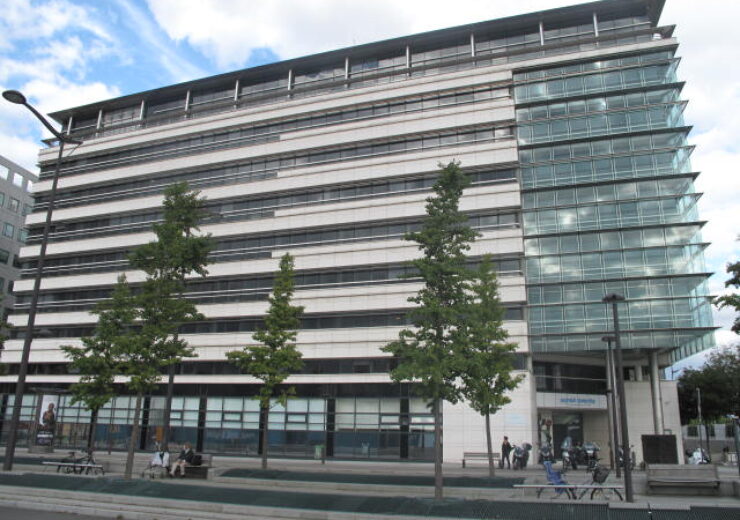The FDA approval of Enjaymo is based on positive results from the Phase 3 CARDINAL trial, a 26-week open-label, single-arm study in patients with CAD

Sanofi former head office in Paris, France. (Credit: Tangopaso/Wikipedia.)
Sanofi has received the US Food and Drug Administration (FDA) approval for Enjaymo (sutimlimab-jome) to reduce the need for red blood cell transfusion due to haemolysis in cold agglutinin disease (CAD) patients.
CAD is a rare autoimmune haemolytic anaemia caused when antibodies called cold agglutinins to misguide the body’s immune system to attack healthy red blood cells (RBCs).
Enjaymo is a humanised monoclonal antibody that selectively targets and inhibits C1s in the classical complement pathway, which is part of the innate immune system.
The drug works by blocking C1s and inhibits C1-activated haemolysis in CAD to prevent the abnormal destruction of healthy RBCs, without affecting lectin and alternative pathways.
Enjaymo has already received FDA Breakthrough Therapy and Orphan Drug designation, and priority review granted medicines that show promise in treating serious conditions.
Outside of the US, sutimlimab has been submitted to regulatory authorities in Europe and Japan and reviews are underway.
According to the French healthcare company, Enjaymo is the first and only approved treatment for people with CAD works by inhibiting the rupture of RBCs (haemolysis).
Sanofi executive vice president and speciality care head Bill Sibold said: “Until now, people living with cold agglutinin disease haven’t had an approved treatment option to manage the constant destruction of red blood cells.
“Without healthy, viable red blood cells, a chain reaction of debilitating signs and symptoms can be triggered, starting with severe anaemia.
“Enjaymo is the only approved treatment to inhibit red blood cell destruction in CAD and help stop the chain reaction from the start.”
The FDA approval of Enjaymo is based on positive results from the Phase 3 CARDINAL trial, a 26-week open-label, single-arm study in patients with CAD.
In the study, Enjaymo is administered weekly intravenously for the first two weeks, followed by every two weeks thereafter, and its recommended dose is based on body weight.
The study has met its primary efficacy endpoint, a composite endpoint and the secondary endpoints, including improvements in haemoglobin and normalisation of bilirubin.
The most common adverse reactions include respiratory tract infection, viral infection, diarrhoea, dyspepsia, cough, arthralgia, arthritis, and peripheral oedema.
Serious adverse reactions include streptococcal sepsis and staphylococcal wound infection, arthralgia, and respiratory tract infection.
CARDINAL study principal investigator Catherine Broome said: “For people living with cold agglutinin disease, it is as if their body’s immune system is waging a war on itself.
“The relentless destruction of healthy red blood cells is a daily, silent reality for people with CAD. For the first time, we have a treatment that targets complement-mediated haemolysis, which is the underlying cause of red blood cell destruction in many CAD patients.
“In the pivotal study, patients treated with sutimlimab had an improvement in anaemia as measured by haemoglobin and bilirubin levels during the 26-week study.”
